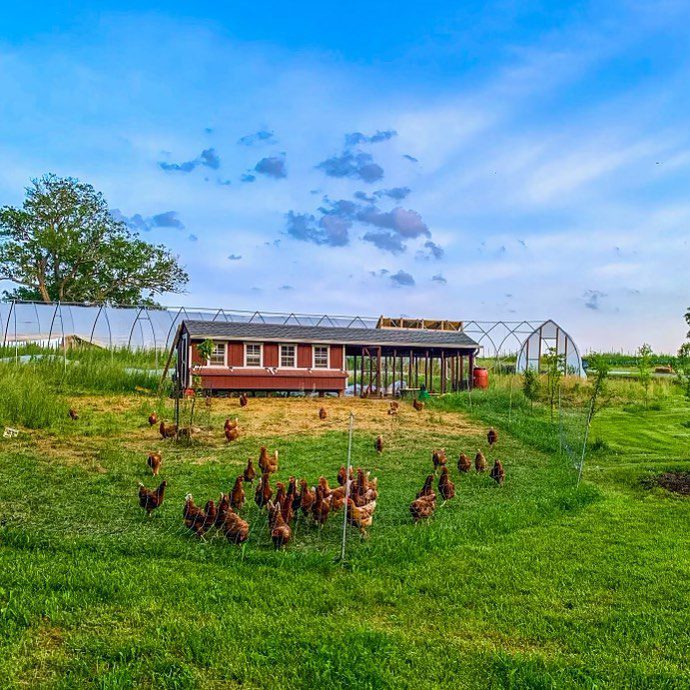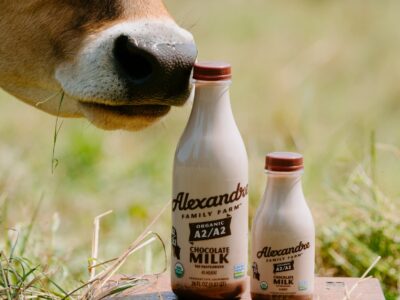Atlas Restaurant Group is one of the premier dining businesses in the U.S. Eateries from Baltimore to Houston are part of a network of sustainably-minded eateries. It now has 22 restaurants under its umbrella, which obtain produce from its regenerative farm operation.
Atlas Farms is a five-acre property in Carroll County, MD, a stone’s throw from Baltimore. Opening in January 2019, the operation uses the latest regenerative agriculture practices to supply the group’s restaurants with fresh, organic produce. No pesticides are used, and the soil is not tilled after an initial sweep of the land to ensure it keeps its vitality.
Other restaurants have dabbled in regenerative agriculture before. Atlas Farms is a different approach. The hospitality firm is growing crops for a collection of restaurants. Most times, it’s a single storefront implementing farm-to-table initiatives. It’s rare to see one group produce vegetables en masse and do it organically.
The farm is operated by Larson Weinstein, a first-generation grower who worked in organic farming for seven years. His trade began when he was an apprentice at a Virginia operation that supplied Washington, D.C.’s Michelin-rated restaurants with organic, local produce.
“We focus on specialty vegetables that the restaurants either go through a ton of or [are] so specialty that our chefs have trouble finding it consistently and certainly have trouble finding it locally,” Weinstein told I95 Business. If a chef can’t find a special ingredient in stores, they can take a seed to Atlas Farms to be planted and harvested.
Before the takeover, the farm was used for grain and soy production. The first batch of crops were planted in March 2020. Since then, the farm has thrived.
With the success of vegetable production, the company hopes to introduce livestock in the coming years.
The goal is to keep as much of a closed-loop as possible and ensure all Atlas restaurants get foodstuff from this venture. Not only will they be able to source meat and eggs from a local supply chain, but farm animals grazing also kills weeds, and manure can be used for fertilizer and compost.
Having a farm like this eliminates a lot of logistical challenges. Rather than having to order from multiple suppliers — causing more emissions from travel — the farm answers all needs from one location. It also helps many of Atlas’s eateries are located in Baltimore, but others in Florida and Texas now have access to a more eco-friendly operation.
Currently, the farm makes up 50% of its seasonal products, with wholesalers covering the rest. The average yield is about 40,000–50,000 pounds of vegetables annually.
Photo Courtesy Atlas Restaurant Group
Atlas Farms is not wasteful. Any imperfect or bruised crops are used in dishes that don’t require an aesthetic presentation, such as bruised tomatoes for salsa. This is a solid zero-waste policy that cuts back on food waste sufficiently. During the COVID-19 pandemic, the farm gave away food to Baltimore service workers.
Atlas Restaurant Group was founded in 2012 by brothers Alex and Eric Smith. Their first restaurant, Kouzina Ouza Bay, opened in Baltimore the same year.
Alex played professional lacrosse before he pursued his career in hospitality. Eric began as a bartender with the group, working his way to managing partner.
Photo Courtesy Atlas Restaurant Group
“We decided that we’d rather have control over the product that is hitting the tables than purchasing it from somewhere else,” Eric Smith told Fast Company. He notes the significant freshness in the regenerative produce compared to other vegetable sellers. Since the soil is healthier and due to the farm’s proximity to Baltimore, the flavor quality is higher.
Atlas Farms is seeking national organic certification from the U.S. Department of Agriculture. The three-year process proves no chemicals are used to protect crops and only natural, holistic approaches to the land are conducted. Atlas Group hopes its restaurants can source 100% of their seasonal produce needs from the Maryland farm in five years.





